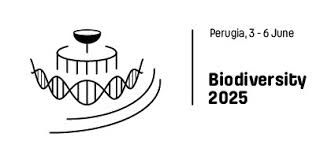NextGenBioPest at the XXVIII Italian Congress of Entomology!
- Angeliki Milioti
- Jun 18, 2025
- 1 min read
Updated: Jul 30, 2025
The University of Catania, a key scientific partner in the Horizon Europe-funded NextGenBioPest project, actively contributed to the XXVIII Italian National Congress of Entomology, held in Siena. The prestigious event gathered entomologists, researchers, and industry professionals from across Italy to share the latest advancements in insect science and integrated pest management.
The University of Catania presented two important communications that reflect the project’s commitment to developing innovative, ecologically sound solutions for pest control in European agriculture.
Poster Communication:
“The Role of Alternative Plants for the Management of Nesidiocoris tenuis in South European Greenhouses”
This poster explored the use of alternative plant species to manage populations of Nesidiocoris tenuis, a zoophytophagous mirid widely used as a biological control agent in greenhouse crops. The study highlights how strategic plant diversification can enhance pest regulation, mitigate plant damage, and promote stability in biological control programs—especially in the context of Mediterranean horticulture.
Oral Communication:
“Exploring the Potential of Anagyrus matritensis (Hymenoptera: Encyrtidae) as a Biocontrol Agent for Phenacoccus solenopsis (Hemiptera: Pseudococcidae)”
This presentation introduced promising research into Anagyrus matritensis, a parasitoid wasp with high potential as a biological control agent targeting Phenacoccus solenopsis, an invasive and economically significant mealybug species. The study evaluated host specificity, parasitism rates, and adaptability of A. matritensis under controlled conditions, supporting its inclusion in future biological control programs in Southern Europe.
Strengthening the Scientific Core of NextGenBioPest
The University of Catania’s contributions at the congress underscore the project’s strong scientific foundation and its focus on practical, field-ready innovations. Both studies presented align with NextGenBioPest’s mission to reduce chemical pesticide use by enhancing natural pest regulation and promoting resilient agroecosystems.


